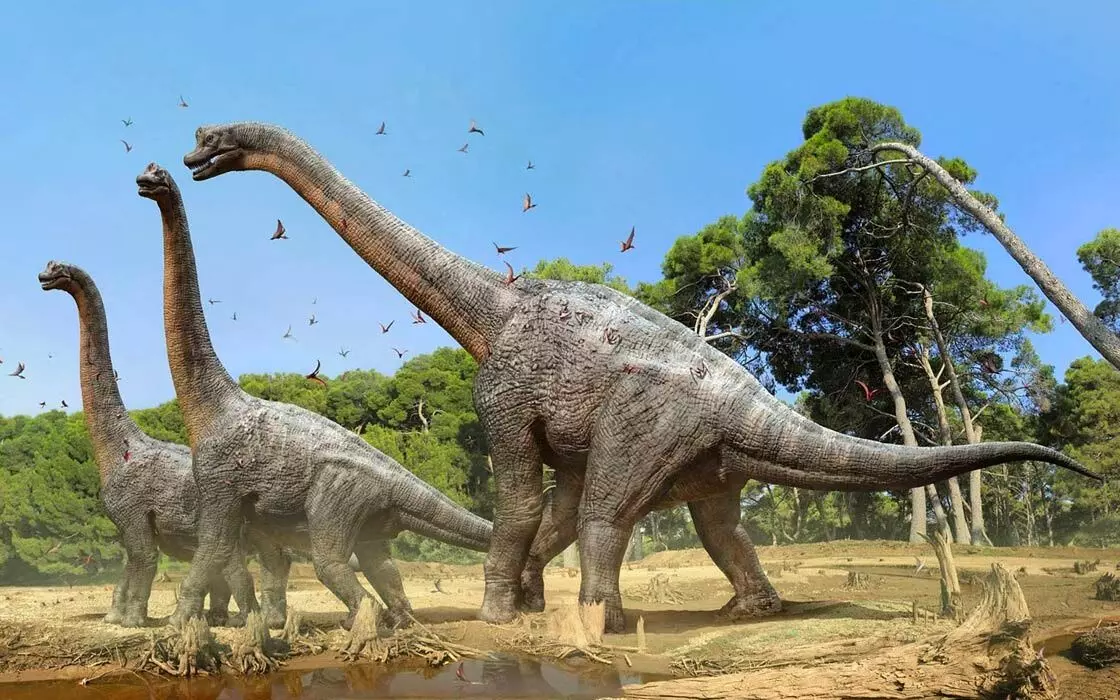Oldest fossils of a plant-eating dinosaur discovered in Rajasthan
The new species, about 167-million-year-old, has been named Tharosaurus indicus, referring to the Thar desert of western India from where the fossils were found.
By Newsmeter Network
New Delhi: Did you know, Thar desert of western India was once a home for dinosaurs?
Scientists from IIT-Roorkee and Geological Survey of India (GSI) have discovered the oldest fossil remains of a long-necked, plant-eating dicraeosaurid dinosaur in Jaisalmer, suggesting that India was a major centre of dinosaur evolution.
The new species, about 167-million-year-old, has been named Tharosaurus indicus, referring to the Thar desert of western India from where the fossils were found.
This dinosaur, described in the journal Scientific Reports, is represented by parts of the backbone (vertebrae) including bones from the neck, trunk and tail, along with ribs.
Tharosaurus
Tharosaurus is characterised by vertebrae with deep, long depressions on the sides and under surface, and split neural spines (top-most parts of the backbone) resembling spikes.
The position of the 'Thar' sauropod in the global family tree of dicraeosaurid sauropods is fairly primitive, the researchers said.
The significance of this work lies in the fact that Tharosaurs marks the first-ever report of a dicraeosaurid sauropod from India, as well as that of a diplodocoid, the larger group which includes dicraeosaurids and their close relatives.
This study comes up as an alternative to previous work on sauropods which suggested that the oldest dicraeosaurid was from China (approximately 166 164 million-year-old) and that the ancestors of dipolodcoids were expected to be present in Asia and the Americas.
The older age of Tharosaurus, coupled with the discovery of more ancestral sauropods (Barapasaurus and Kotasaurus) from the Early Jurassic rocks (approximately 199 183 million-year-old) of central India, strongly suggests that Indian subcontinent was a centre for the origin for diplodocoid dinosaurs, the researchers said.
"Our theory garners support from the past geographic arrangement of the continents. During the Middle Jurassic, all the continents were sorted into two major clusters/supercontinents, where the Northern supercontinent was called Laurasia and the southern one was called Gondwana," the authors of the study noted.
Migration from India to Africa
"India was a part of Gondwana and had links to South America via Madagascar and Africa. These land-connections would have helped the diplodocoid sauropods to migrate from India to Africa-South America and from there to Europe and Asia through North America," they said.
Detailed study of the fossils began in 2022 and was carried out by Sunil Bajpai and Debajit Datta from the Indian Institute of Technology (IIT) Roorkee.
The bone structure of the fossils along with a global comparison with other sauropods revealed that the Jaisalmer sauropod represents a new dicraeosaurid, a group of dinosaurs that was not yet known from India.
The dicraeosaurs were a group of small-bodied sauropods (30 40 feet in length) with a short neck and tail. Their neural spine (top-most part of the backbone) extends in the form of elongated spines forming a crest or sail along their back.
Systematic fossil exploration and excavation programme initiated by the GSI in 2018, led to the discovery of several fossil bones of a dicraeosaurid dinosaur from the Middle Jurassic (167 million years old) rocks of the Jaisalmer district of Rajasthan.
The fossils were collected by GSI officers Krishna Kumar, Pragya Pandey and Triparna Ghosh under the supervision of Debasis Bhattacharya.
Inputs from PTI